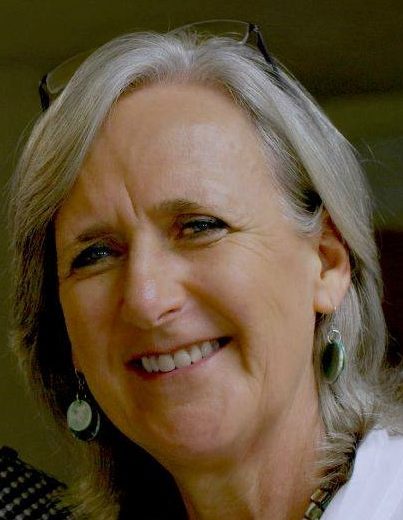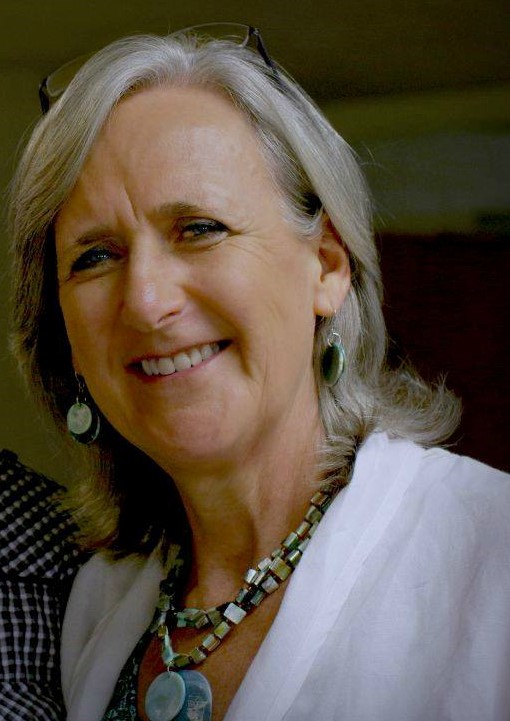Pursuing Partnership Part 27: Leadership Profile on Marti Williams


By Rebecca Hopkins, Paraclete Mission Group – Writer about nonprofit work. http://www.rebeccahopkins.org.
This article is part of the series Pursuing Partnership: Men and Women in Ministry.
Part 27: Leadership Profile on Marti Williams
Her job was to bring more women and people of color into her organization. Then 2020 happened. Here’s what she’s learned.
If you want to stump Marti Williams, just ask her where she’s from. South Africa, where she spent much of her childhood? The United States, where she holds citizenship despite the limited years she’s spent here? Zimbabwe, United Arab Emirates, Australia—places where she lived, raised her kids, but lived on just temporary visas for a combined total of 34 years?
But ask her to take on a new role and she’s quick to answer. Yes.
Like her country background, she’s gathered a wide variety of experiences and skills—nursing, teaching, church planting, women’s ministry. And what she doesn’t know, she’ll learn.
In 2017, she suddenly had to leave Australia, where she had served as a church planter and college professor of women’s studies in missions. After 17 years, that temporary visa had run its course. It was a devastating ending. She was leaving behind ministry, most of her stuff and a daughter and grandkids.
She and her husband, who was serving in executive leadership with TEAM, moved to South Carolina, bought a house, and then were given a house full of furniture by family.

“I’m laying in bed, and I’m thinking, ‘we just bought a house, and all we’ve got are our suitcases of clothes, and a few souvenirs from Australia and not a stick of furniture,’” she said about that first night. “We get up the next morning and Ray’s sister says to me…they have a full house full of furniture. They said come on down and look at the stuff.”
After getting settled, she asked the organization how they’d like her to serve. The request? Director of Equity and Diversity. Specifically, she was asked to raise up women and people of color into positions of leadership.
“I was like, ‘OK, how do I do that?’” she said. “So, I started focusing on the women because it’s what I know.”
She spent nine years teaching women’s ministries at the Adelaide College of Ministries in Australia so she understands the seasons of women’s lives, women in church history, women in missions and women in leadership. So, in her new role at TEAM, she evaluated how new female candidates viewed their roles and opportunities.
“My goal was twofold: to convince women that they can step into positions of leadership, both in the Lord’s eyes, and a team to encourage them to get the training to be able to do it, and then also to convince the men to see women as potential leaders,” she said.
She encouraged women to get leadership training that tailors to their own questions, skills and needs, such as Women’s Development Track’s Leadership Pathways course. She reminded leaders to not forget about the women who are at home with their children: Start preparing them now for leadership opportunities later. And she taught staff that women may lead in different ways.
For instance, “women are much more collaborative,” said Williams. “Women will (bring up vision) in the form of a question because they’re trying to open the dialogue.”
But as the needs expanded to include concerns of people of color trying to serve and lead in Christian nonprofits, Williams realized she needed to learn more. She’s seen racial issues firsthand—first as the daughter of a missionary in South Africa during apartheid, then as a teenager living in America for the first time, during the civil rights movement. Now, she’s surrounding herself with people from various ethnicities who have been open and willing to speak into her life. And she’s been listening to people of color who have worked for TEAM and are willing to share their experiences. From her time of learning, she’s developed a four-step process for learning for others in her organization.
Ignorance, or lack of understanding, is the first step. Awareness comes next. Then comes intentionality. Finally, Gospel community is the ultimate goal.
“That’s probably after Jesus comes,” she admits.
Organizations need to ask themselves—and people of color who have left—of what they should repent, Williams said. The goal shouldn’t just be learning, but also, if possible, restoration.
“Until we know what it is we can’t stop,” she said.
Finding common ground among cultures is an important step. But seeing and honoring the differences is even more key to welcoming diversity and voices.
“The need for diversity and the need for bringing other perspective close to me—not just to be colorful, but to actually have their perspective and bring the differences that they bring to the table—that impacts how we decide ministry how we make decisions,” she said.
It’s a process, though, Williams said. She’s learned about God’s faithfulness through the ups and downs of ministry, transitions and losses. And that steadies her.
“I don’t have all the answers,” she said. “I just know what God has done for me.”
This article is submitted by Wendy Wilson of Missio Nexus and of Women’s Development Track. Women’s Development Track is a Missio Nexus member. Member organizations can provide content to the Missio Nexus website. See how by clicking here.





Informative article on a impacting woman. Thank you Marti for a wonderful life of service! You are valued.